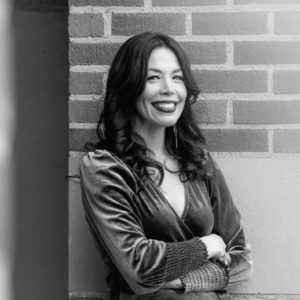On November 8, Dr. Tria Blu Wakpa will share her research findings through her talk: “Still Our Own Indian Selves: The Decolonial Possibilites of Student Theatrical Productions at a Former Indian Boarding School.” This program begins at Noon and ends at 1:00. PACIFIC TIME. The presentation is only on Zoom in order to make it available to everyone regardless of time zone. IF you want to attend, please send a message to livelyfoundation@sbcglobal.net so that we can send you the Zoom codes. The event is presented by The Lively Foundation. It is FREE. IF YOU ARE ABLE, please consider making a donation of $10 – or any other amount – to support Lively’s programs. The following information is Dr.Tria Blu Wakpa’s Abstract and Biography in full.
 Dr. Tria Blu Wakpa, Assist. Professor, UCLA’s Department of World Arts & Cultures/Dance
Dr. Tria Blu Wakpa, Assist. Professor, UCLA’s Department of World Arts & Cultures/Dance
Abstract:
In this presentation and workshop, I will first share research that examines student performances that occurred at St. Francis Mission School between the 1930s and 1950s and then offer a workshop that incorporates movement and mindfulness practices based on these findings. Founded by Jesuit officials in 1886, St. Francis operated as an Indian boarding school until 1972 on the Rosebud Indian Reservation, located in South Dakota on the lands of the Rosebud Sioux Tribe, who are Sicangu Lakota. I posit that officials invested an immense amount of time and resources into staging these productions, because they fulfilled institutional aims by attempting to assimilate and convert Lakota people while shaping and disseminating discourses related to the purported legitimacy, sanctity, and benevolence of St. Francis and its alleged contributions to Lakota people and futurities. I term these methods settler colonial choreographies. Meanwhile, working within material and structural confines, Lakota people found ways to sustain their practices and identities, navigate settler colonial stereotypes and institutional policies, document their experiences and contributions, and otherwise nurture their wellbeing, freedom, and futurities. I refer to these actions as decolonial choreographies. Ultimately, I show that the productions simultaneously supported the self-determination of St. Francis—and by extension the U.S.—and Lakota people. To conclude the session, I will guide attendees in movement and mindfulness practices that are in conversation with the tactics that Native people used to reinterpret student theatrical performances at St. Francis and support their holistic health.
Bio:
Tria Blu Wakpa is an Assistant Professor in the Department of World Arts and Cultures/Dance at UCLA. She received a Ph.D. from the Department of Ethnic Studies at UC Berkeley. Her research and teaching center community-engaged, decolonizing, and movement analysis methodologies to examine the history and politics of dance and other holistic practices—such as theatrical productions, athletics, and yoga—for Indigenous peoples in and beyond structures and institutions of confinement. She is a mother, scholar, poet, and practitioner of Indigenous dance, Indigenous Hand Talk (sign language), martial arts, and yoga. In addition, she is the Co-Founder and Editor-in-Chief for Race and Yoga, the first peer-reviewed and open-access journal in the emerging field of critical yoga studies. Her first book project, Choreographies in Confinement, contextualizes dance, theatrical productions, basketball, and/or yoga at two sites for Native children on the Rosebud Indian Reservation in South Dakota: a former Indian boarding school and a tribal juvenile hall. Her writings have been translated into French and Portuguese and appeared in academic journals and books. In 2023, Professor Blu Wakpa’s article, “From Buffalo Dance to Tatanka Kcizapi Wakpala, 1894-2020: Indigenous Human and More-than-Human Choreographies of Sovereignty and Survival,” won the American Society for Theatre Research’s Gerald Kahan Scholar’s Prize “for the best essay written and published in English in a refereed scholarly journal or edited collection.” This same year, she was named the Fulbright Association’s Selma Jeanne Cohen Dance Lecture Awardee. She has held major fellowships from the Ford Foundation, the Fulbright Program, the Hellman Fellows Fund, and the UC President’s Postdoctoral Program.